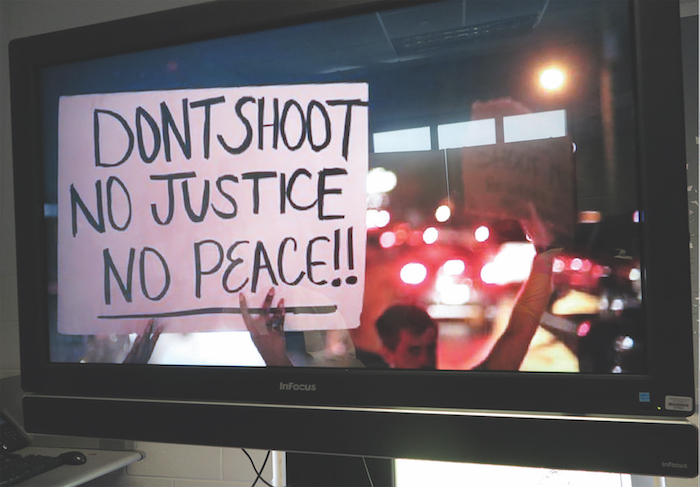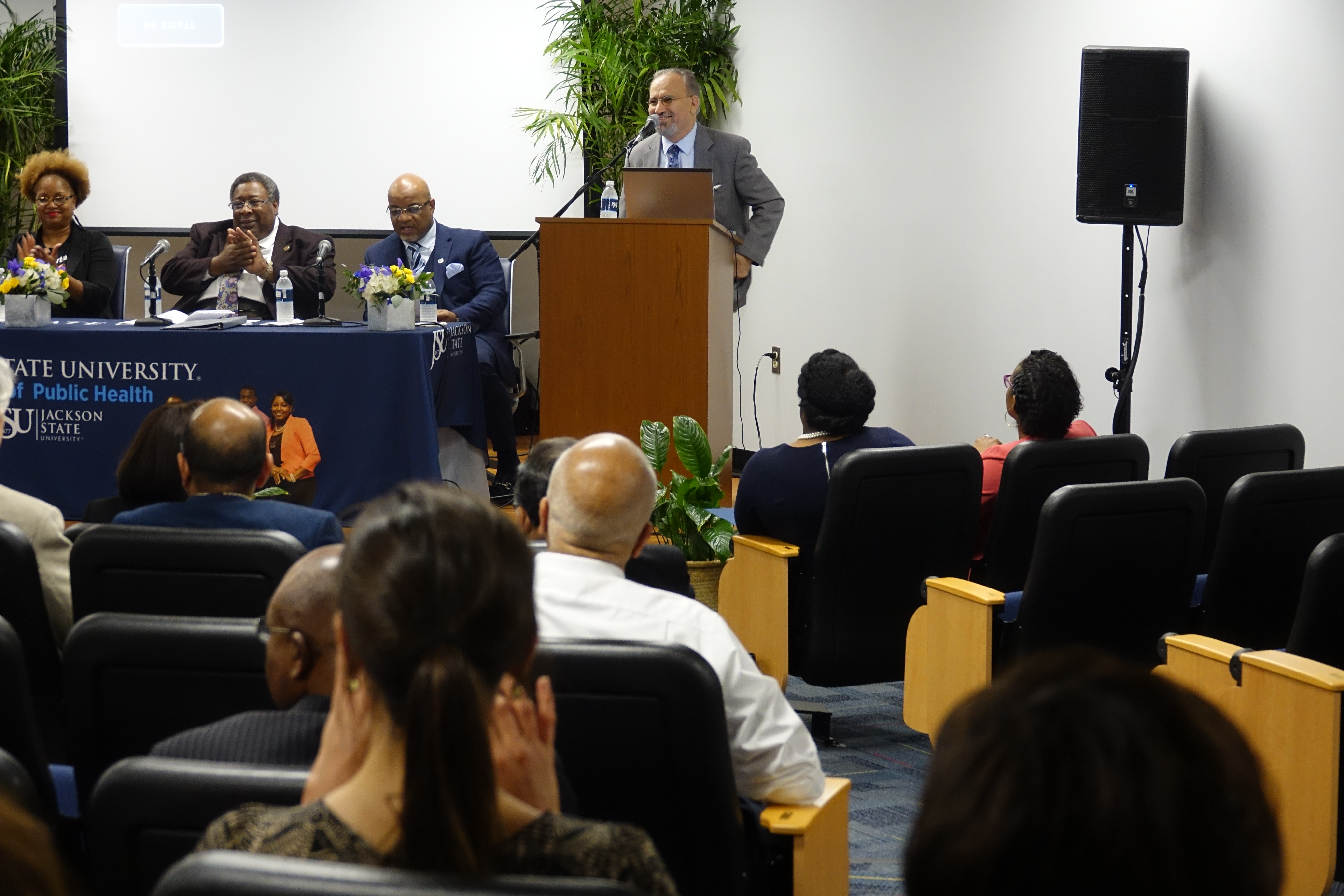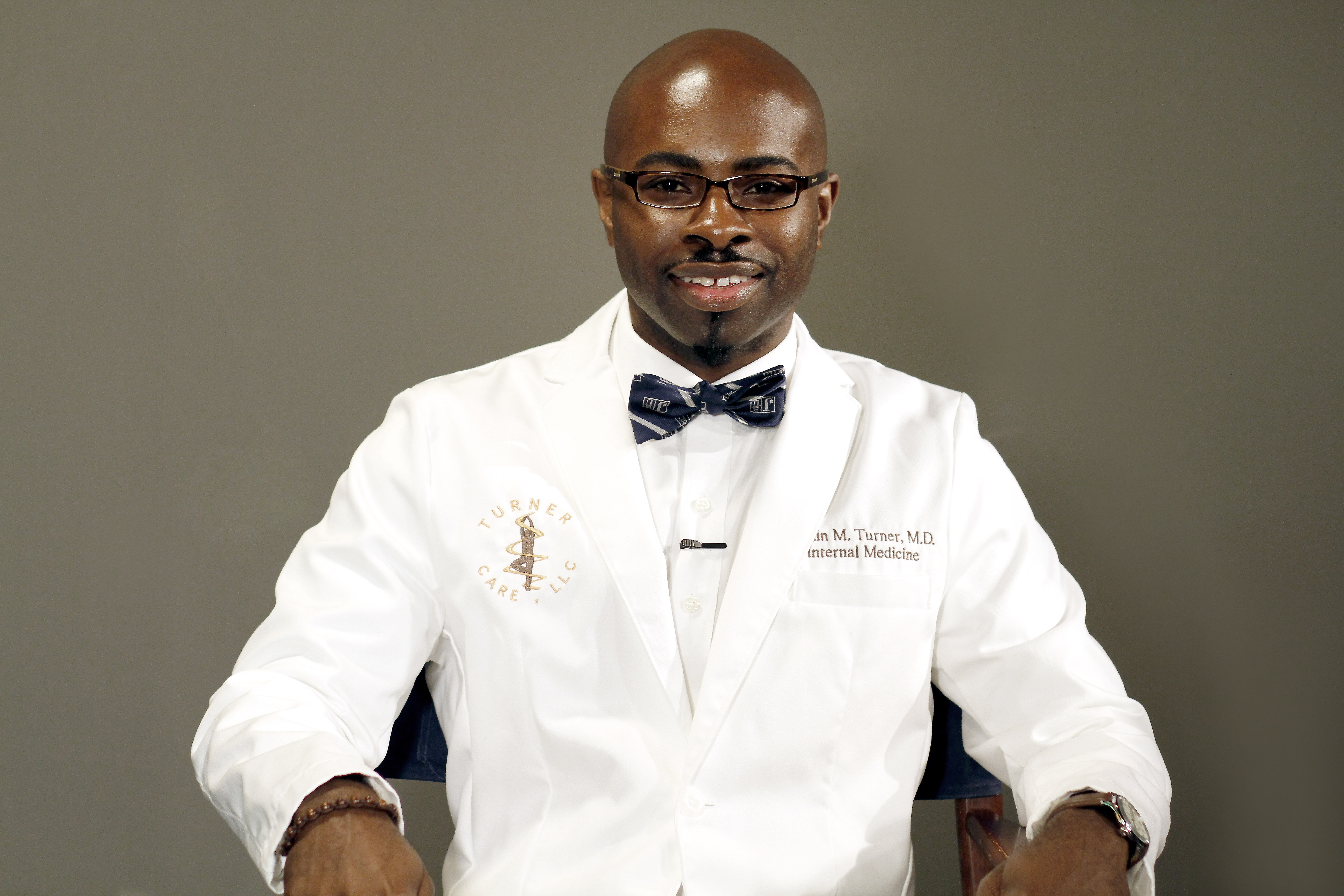[vc_row][vc_column][vc_column_text]
Jackson State University said $1.8 million allocated recently by state legislators to the School of Public Health (SPH) should help in the fight to eliminate health disparities even as many Americans’ lives are being cut short despite improvements in public health. JSU President William B. Bynum Jr. made the announcement as he joined a group during National Public Health Week to discuss illnesses related to disparities and racism. The SPH panelists also addressed social determinants of health.
“Americans live shorter lives and suffer more health issues than people in other high-income countries,” Bynum said. “We rank 34th in life expectancy; we need to work together to make sure we do better and improve our overall well-being.”
Dr. Mohammad Shahbazi, interim dean of SPH, expressed grave concern over the state’s predicament.
“It doesn’t make any sense that some people in Mississippi live 10 fewer years than others in the U.S., or in Mississippi, in general. There are issues of racism, social determinants of health and many other factors,” he said.
“One of the main reasons is that we’ve been focusing too much on treatment rather than prevention. That’s why a School of Public Health is important.”
Shahbazi touted the benefits of partnerships in solving many of the health disparities. He especially noted JSU’s relationships with state leaders and the significant role of the Jackson Medical Mall Foundation (JMMF).
[/vc_column_text][/vc_column][/vc_row][vc_row type=”” top_margin=”none”][vc_column type=”” top_margin=”none” width=”1/1″][vc_empty_space height=”32px”][/vc_column][/vc_row][vc_row type=”” top_margin=”none”][vc_column type=”” top_margin=”none” width=”1/1″][vc_separator_pr style=”default” top_margin=”none”][/vc_column][/vc_row][vc_row type=”” top_margin=”none”][vc_column type=”” top_margin=”none” width=”1/1″][vc_empty_space height=”32px”][/vc_column][/vc_row][vc_row type=”” top_margin=”none”][vc_column type=”” top_margin=”none” width=”1/1″][vc_column_text]
Men’s healthcare conference explores cancer, other illnesses

The ninth annual Men’s Health and Health, Healthcare Conference was held over the summer and addressed myriad topics ranging from prostate cancer to infectious diseases. The event was sponsored by the School of Public Health’s Institute of Epidemiology and Health Services Research Center of Excellence in Minority Health and Health Disparities.
At the forum in the Mississippi Civil Rights Museum, Dr. Carl Hill of the National Institutes of Health, addressed disparities affecting underrepresented groups throughout the nation. Through its funding, NIH aims to target solutions that will provide a better quality of life.
As well, state Sen. Hillman Frazier, a JSU alum, talked about the

prominence of the disease and his past battle with it. Quoting the American Cancer Society, he said a man is diagnosed with the illness every 2.9 minutes. Even more grim, he said a man dies from prostate cancer every 19 minutes (about 75 deaths per day).

Dr. Thomas Dobbs, deputy state health officer for the Mississippi State Department of Health, tackled the issue of HIV. He distinguished between the virus and AIDS, which he calls “the clinical scenario when you’ve had HIV long enough that’s it’s had a chance to deteriorate your immune system.” While there is no cure, he said better treatment options exist from past decades.
Dobbs said the southeast is the epicenter for the HIV epidemic, with rates in the Deep South “super high.” He noted that in 2015, Mississippi had the sixth-highest rate of HIV diagnoses in the nation. “Of all metropolitan areas, Jackson, in 2015, was the single highest city for HIV transmission.” He blames social determinants of health that include poverty, lack of healthcare, substance abuse, stigma, etc. He said that while recent U.S. data show fewer infections among men and a slight uptick among women, the situation still remains dire in Mississippi.
The conference was spearheaded by Dr. Marinelle Payton, chair and professor of JSU’s Department of Epidemiology and Biostatistics.
[/vc_column_text][/vc_column][/vc_row]










Leave a Reply